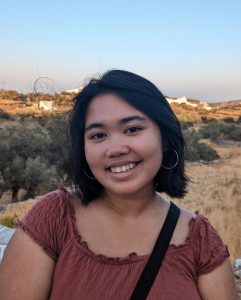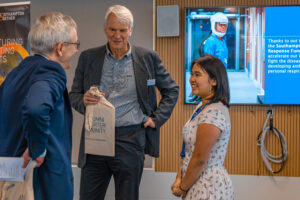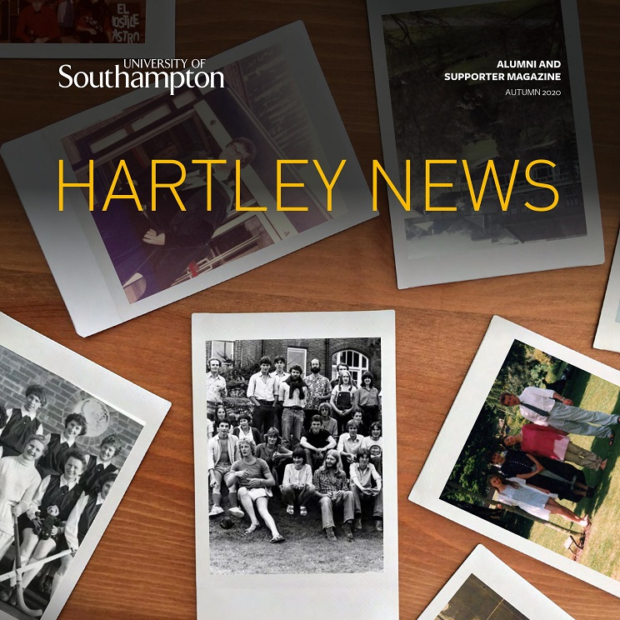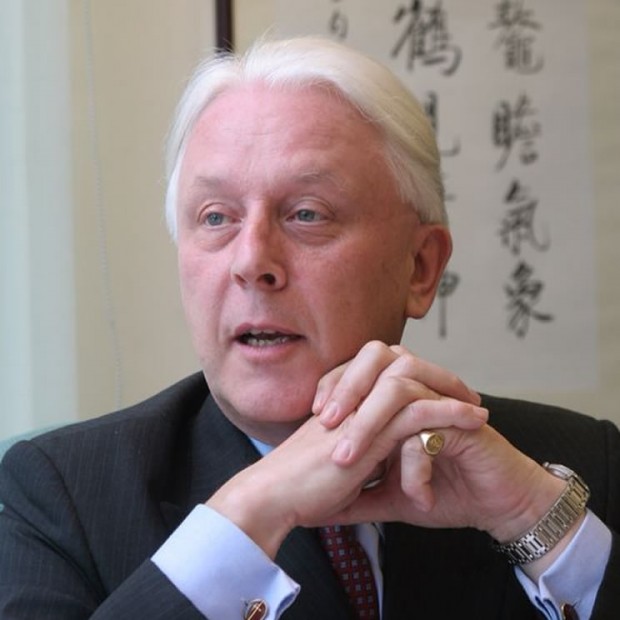Hartley News Online Your alumni and supporter magazine
In the world of cancer research, one young scientist is on a mission to unravel the mysteries of a rare form of the disease. Amatta Mirandari is a third-year iPhD student at the University of Southampton working within Southampton’s Centre for Cancer Immunology. An iPhD is a programme of postgraduate study with an integrated master’s year. Amatta’s work could revolutionise our understanding of a hard-to-treat cancer, which could improve diagnosis, treatment and, ultimately, save lives.
Amatta grew up in Jakarta, Indonesia, before travelling around the world to study in the UK. Her passion for cancer research drew her to the University of Southampton for a master’s degree in Oncology and Cancer Biology where she remained to begin her iPhD.
Her story is truly a global one. Amatta is the recipient of a scholarship, funded by donors to the University. This philanthropic support comes from two families, one in Jersey and the other in the Cayman Islands. This has allowed the talented young scientist to focus on her important studies.
Choosing the University of Southampton was no coincidence. As home to the world-leading Centre for Cancer Immunology, Amatta saw Southampton as a beacon in the field of cancer research.
“The amazing hub for cancer research, with clear opportunities for multi-disciplinary collaborations within the department and its links as well to many external collaborators, really attracted me to Southampton.”
Joining a supportive learning community
Amatta sees the University as a supportive community where she will grow and develop her talents as a researcher. The Cancer Immunology iPhD course offered at Southampton was a big part of that.
“I was very attracted to the iPhD course, which allowed me for a year to first try out different research areas before committing to a full PhD – through this scheme, I have managed to learn so many new skills, especially in the lab!”
For Amatta, her own personal growth is only part of her story. Her true ambition is to fight cancer back home in Indonesia. Within the hands-on culture of the department, she is making game-changing advances in understanding cancers. Her work on a rare cancer called splenic marginal zone lymphoma (SMZL) could redefine our understanding of difficult-to-treat cancers.
SMZL is rare, forming just 2% of all lymphoid tumours, but it is particularly dangerous as it can change quickly and suddenly become aggressive. Up until now, it has been hard to diagnose as it often looks like other diseases. Not only that, but until recently its rarity has limited the availability of samples to explore.
Now Amatta’s research is focused on changing that. With significant access to patient samples from across Europe, and employing a range of cutting-edge technologies, Amatta and her team are beginning to piece together the entire genetic make-up of SMZL. Their goal? To identify the genetic alterations responsible for driving the disease’s development. These insights could mark a significant step forward in helping us diagnose and treat cancer more effectively. Advancements that could enable more precise risk assessment and personalised treatment plans—an exciting step towards the era of precision medicine in cancer care.
Establishing a global future
The University of Southampton is giving Amatta the tools to bring new approaches to cancer research back to Indonesia. She is gaining skills with advanced technologies and techniques which will be invaluable back home.
“I hope to then go back to Indonesia, to help develop our cancer research there. While it has improved, Indonesia’s cancer research and development are still lagging in comparison to the UK. I hope to be able to bring my experience and expertise to help improve the quality of cancer research in Indonesia, with a new set of tools to apply to research back home.”
Stories like Amatta’s are just part of the bigger picture as the University of Southampton continues to enable access to cancer immunology worldwide. With the help of generous donors, we are training the next generation of medics and cancer researchers who will save lives around the world.





